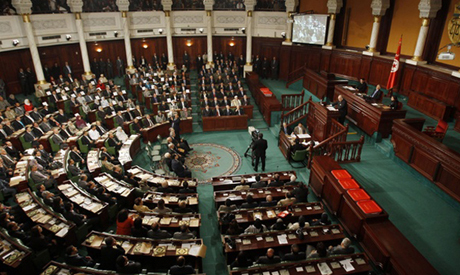Amnesty Voices Concern over Tunisia Draft Constitution

Amnesty International expressed concern on Saturday over Tunisia's draft constitution, saying the text contains ambiguous provisions that fail to uphold international human rights standards.
The rights watchdog made the comments on the eve of a meeting of the National Constituent Assembly and ahead of the second anniversary on Monday of the overthrow of Tunisian strongman Zine El Abidine Ben Ali.
Amnesty said it called on the NCA to "ensure that the new constitution fully safeguards human rights and conforms to Tunisia's obligations under international human rights law."
Noting that the the NCA was due to discuss a second draft of the charter on Sunday, it urged the body to "seize the opportunity" to ensure "the highest level of protection of the rights of everyone in Tunisia and signal that there will be no turning back on human rights."
It expressed particular concern about what it called vague or ambiguous wording in several clauses and that "some human rights guarantees are not fully defined."
"In the past year, freedom of expression has been under attack and women's rights undermined in Tunisia. It is therefore crucial for the new constitution to fully protect these rights," it said.
Amnesty welcomed "the removal in the current draft of previous proposals that undermined gender equality, by including ambiguous wording on the complementary roles within the family, and freedom of expression, by criminalizing attacks against religion and 'sacred values.'"
But it said other clauses are ill-defined, particularly ones pertaining to equality between men and women and equal opportunity between the sexes.
"The constitution should include a provision specifying that women and men are recognized as equal, and are entitled to full equality in law and practice and equal opportunities in all areas of life, including without limitation in the civil, cultural, economic, political and social spheres," Amnesty said.
The group also noted vague definitions concerning freedom of opinion and expression, the independence of the judiciary and what constitutes torture, urging clarity and transparency.
The new constitution has been delayed for more than a year amid disagreement between the ruling Islamist Ennahda party, its coalition partners and the opposition.



